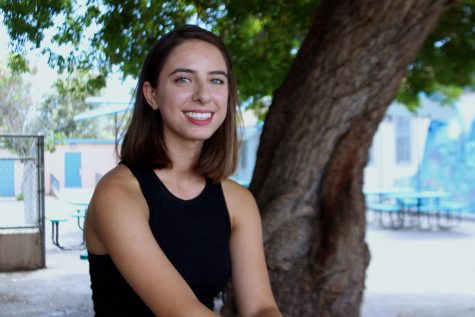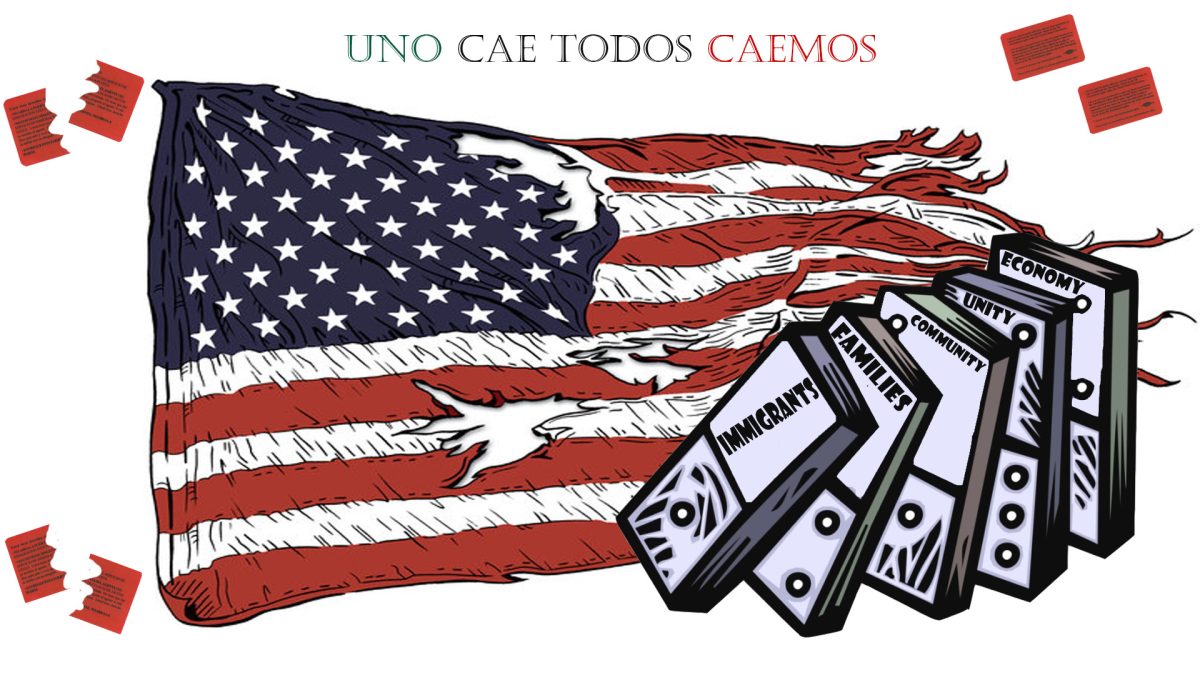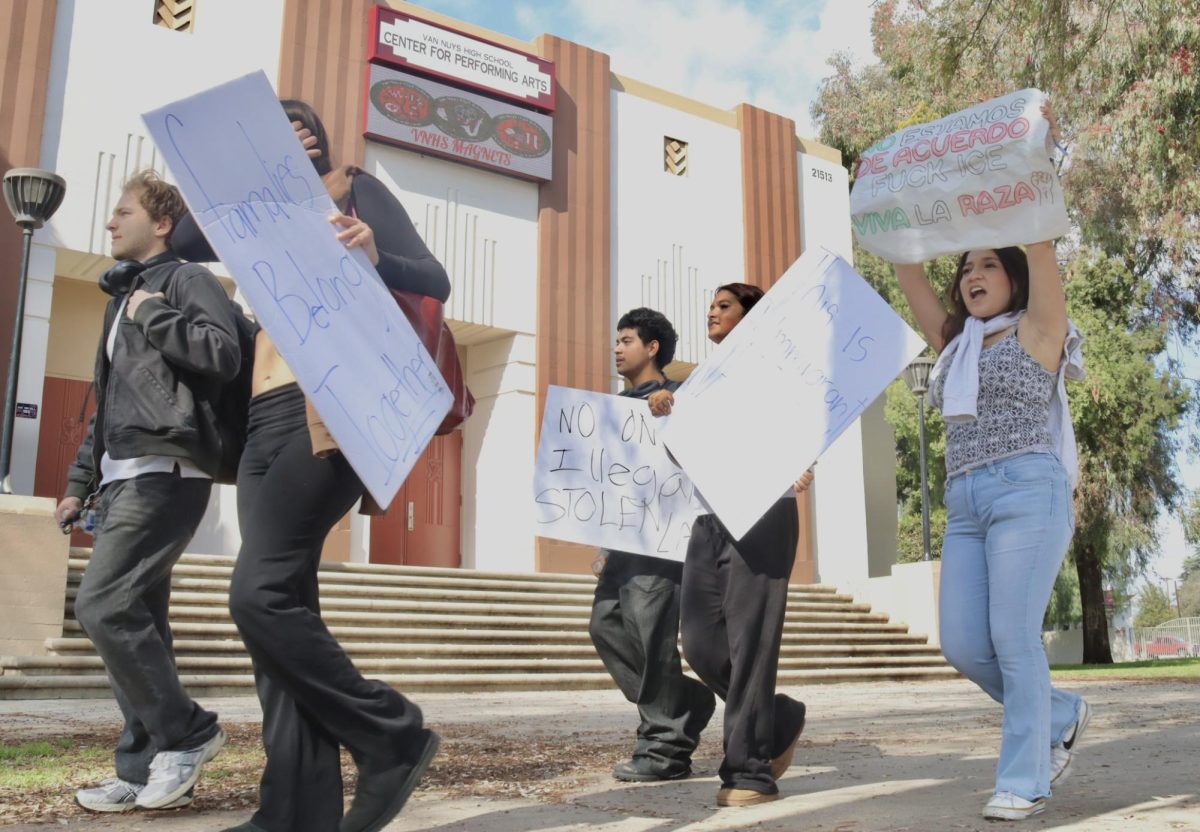Marches unite groups of people to work together for their purpose
May 10, 2017
On Jan. 21, I joined over 750,000 protesters of different ages, races, religions, cultures and sexual orientations all marching for the same cause: to have our voices heard.
Directly after the march, I was automatically criticised by those close to me for protesting in Downtown L.A. I was told that carrying signs and screaming out my grievances is a waste of time and that we were just “causing a scene.”
“Marches show that what we have to say is important,” junior Kamryne Blake said. “I like to see all the support and positivity everyone has for each other. It’s sort of like a whole bunch of strangers you don’t know but you’re a giant family.”
After Donald Trump was sworn into office on Jan. 20, Downtown L.A. exploded with protesters marching for the causes and rights that they feared are on the verge of being taken away. Just in the the past five months, there has been a multitude of marches taking place in Los Angeles including The Medicare for ALL March on Feb. 4, the Immigrants Make America Great March on Feb. 8 and the Tax March on April 15. As thousands of participants show up for these marches an important question began to arise: are these marches effective?
“I do not really think the marches that occurred has changed anything, they seem ineffective” sophomore Clarissa Jimenez said.
Many people label marches as useless because they usually are unable to produce any significant short-term results. It has been three months since the Women’s March and many of the demands placed by the organizers in their statement of principles were not met. The long overdue Equal Rights Amendment which fights for a guarantee of equal rights, regardless of gender was fought for passionately during the march, but there has been no immediate action.
However, this does not mean that these marches have no long standing significance. According to “From the Outside In: Young Americans’ Views on Creating Political Change” published by The Harvard Political Review, over half of young adults believe that talking about political issues whether through marches or any other means is one of the top three most effective ways to create political change.
Those who believe that marches are pointless are saying that people are unable to make a difference by speaking their mind. Without protests and marches, there would never be any movements. For instance, the Civil Rights Movement exploded after over 200,000 people assembled in Washington D.C. for the March on Washington on August 28, 1963. The speech that Dr. Martin Luther King Jr. delivered during the March on Washington directly led to an increase of participation in the Civil Rights Movement, as well as the Civil Rights Act of 1964.
It is unreasonable to believe that one single march will create change overnight; change is always a slow and tedious process. However, we are coming together and making connections. We are letting people know that they are not alone.
“I went to the Women’s March and it was really amazing to see how women, men and non binary people were all in support of each other,” Blake said. “The March showed that what we were saying is important.”










